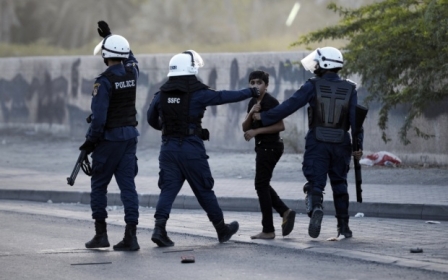Authorities in Bahrain shut down the country's only independent newspaper

Authorities in Bahrain on Thursday evening shut down the island’s only independent newspaper, according to a government press release.
Al-Wasat, a newspaper respected throughout the region, was “temporarily suspended […] until further notice”.
“This is due to its violation of the law and repeated dissemination of information that affects national unity and the kingdom’s relationship with other countries,” read a statement posted to the Bahrain News Agency at 11.39pm on Thursday.
No one at the newspaper has been informed of exactly which law they are accused of violating, according to the London-based Bahrain Institute for Rights and Democracy.
The family of Mansoor al-Jamri, editor-in-chief of al-Wasat, claimed that the announcement was designed to coincide with him being out of the country, but added that he had in fact returned from an overseas trip on 5 August.
The family added that the suspension will cause “large scale financial damage” to the newspaper due to loss of sales and advertising revenue. Al-Wasat employs around 300 people.
Human rights activists condemned the decision to close the newspaper as an attack on the media.
“This is an attempt to shut down the only semi-free media in the country,” said Hussain Abdulla, executive director of Americans for Democracy and Human Rights in Bahrain.
“Al-Wasat was founded in 2002, as part of King Hamad’s reconciliation programme. The government’s suspension of it now represents a total rejection of that reconciliation, 13 years on.”
Bahrain is ranked 163rd in the world for press freedom by Reporters Without Borders.
Al-Wasat was forced to temporarily close in 2011 after the island was swept by hundreds of thousands of people taking part in pro-democracy protests.
In April of that year the newspaper’s co-founder Karim Fakhrawy was tortured to death in police custody, according to numerous reports from human rights groups who pointed to published photos of his bruised and battered body.
The Khalifa ruling family responded to the calls for political reform by cracking down hard on the protesters and in the four years that have passed the police and security forces have become the target of sporadic attacks by fringe elements of the protest movement.
Middle East Eye propose une couverture et une analyse indépendantes et incomparables du Moyen-Orient, de l’Afrique du Nord et d’autres régions du monde. Pour en savoir plus sur la reprise de ce contenu et les frais qui s’appliquent, veuillez remplir ce formulaire [en anglais]. Pour en savoir plus sur MEE, cliquez ici [en anglais].




